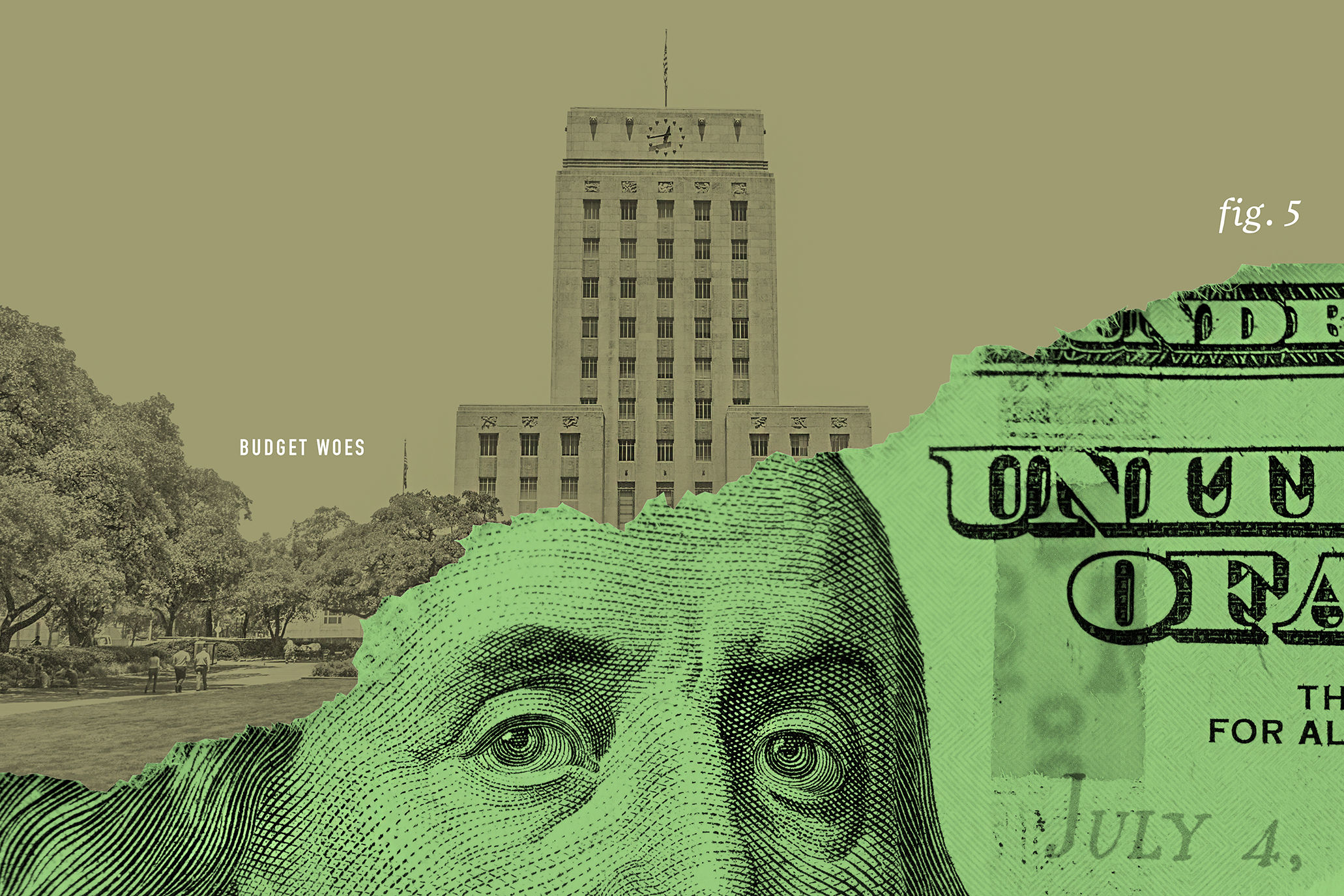Houston Is in Bad Financial Shape, Says Fiscal Times

Less than a year after being downgraded by Moody's and S&P, Houston's financial health takes another hit from the Fiscal Times.
Image: Shutterstock
If you thought yesterday's news about Houston being one of the worst cities in which to try and keep your New Year's resolutions was bad, we've got worse for you: the Fiscal Times, an actual news organization with actual reporters whose methodology is actually sound (ahem, Care.com), released a report this week rating Houston's financial wellbeing as among the worst in the nation.
While Houston didn't crack the Top 10—a pack led by Chicago, New York City and Reno, Nevada, respectively—it did bring up the rear at No. 11, just behind Dallas at No. 10. Another Texas city, El Paso, ranked at No. 7 on the list. Each of these cities carries the burden of having very small general fund balances and very high debt obligations. Only one city escaped with a perfect "fiscal strength score" of 100: Irvine, California.
"Rising revenues have resulted in a series of budget surpluses that have bulked up the city’s reserves," wrote Marc Joffe at the Fiscal Times, explaining Irvine's exemplary finances. "In 2015, the city reported over $700 million of cash and investments on its balance sheet, more than enough to fund two years of government spending." What else does the California city have going for it? "Irvine is also unique among large American cities in that it has no outstanding bond obligations. All municipal borrowing in Irvine is done by special districts, which levy supplemental taxes to service their debt."
In Irvine, only 6.83 percent of its total revenues are allocated towards long-term obligations. Contrast that with Houston, where a staggering 339 percent of our revenues are somehow meant to pay off our various long-term debt obligations. Irvine also has the general fund reserves to cover 75 percent of its expenditures, whereas Houston could cover only 17.5 percent (though this is at least just above the Government Finance Officers Association's baseline recommendation of 16.67 percent, which is equivalent to two months of spending).
We don't normally put much stock in rankings or ratings, like those which perpetually place Houston among the fattest or least-in-shape cities in America. But it's hard to argue against Houston's outstanding pension obligations, among other issues, including a decrease in sales tax revenue, a sluggish oil and gas market, and a revenue cap passed in 2004 that limits the city's ability to collect property taxes (a boon for homeowners, but a much-needed source of city income during soft economic times).
This news comes less than a year after Houston's bond rating was downgraded by both Moody's Investor Services and Standard & Poor's, the latter of which released a report in March 2016 stating: "The negative outlook reflects our view that there is at least a one-in-three probability that we could lower the rating again within the next two years if Houston is unable to develop and implement a credible plan that lowers its unfunded pension liability or if continued softness in oil prices leads to ongoing contractions in tax revenue."
Stay tuned to our February 2017 issue for more on the City's underfunded pension plans and Mayor Sylvester Turner's strategy to rehabilitate them, and, hopefully, Houston's economy as a whole.




